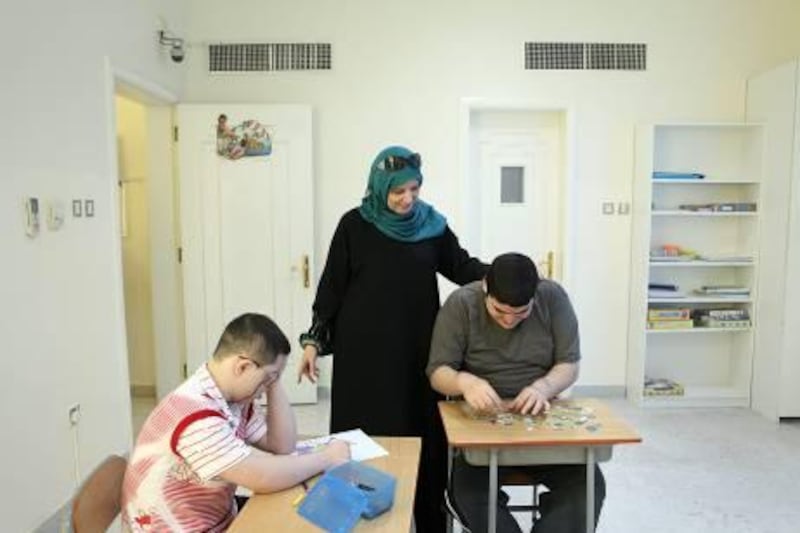ABU DHABI // It was the birth of her fourth son Bilal 16 years ago that put Samira Salem on a path to her position as manager for the Development Abilities Centre.
The 49-year-old Palestinian mother of five began to notice behavioural changes when he was 18 months old. By three, he was diagnosed with severe autism.
Accessibility: How the requirements of people with special needs are being met
Last Updated: June 1, 2011
The drive to include pupils with disabilities Education ministries in Abu Dhabi, Dubai and the Northern Emirates are focused on getting students with special needs into regular classrooms where they can thrive. Read article
Funding is universities' biggest challenge Universities need funding to make the campuses and courses more accessible, experts say. Read article
Expatriates frustrated by the lack of special needs options When it comes to getting an education, expatriate parents face a dearth of options for their special needs children. Read article
Dh17,500 camera would help student gain independence Expensive equipment required to help university students with special needs held up by lack of funding. Read article
[ More on services for disabled people in the UAE ]
"I started reading about autism so I would know how to deal with him," she said. "I wanted to learn more about behavioural modification and teach him to become independent and less reliant on others for certain things."
She took courses on special needs and attended programmes in Jordan, Egypt, Lebanon, Palestine and the UAE. After earning a diploma in special needs education, she is working on completing her master's degree in autism at Assiut University in Egypt. The Abilities Centre is a private facility established in 2007, specialising in evaluation, training and ability development for children with special needs.
It caters for 53 people between four and 20, more than half with Down syndrome and autism, with the aim of helping them integrate into mainstream education and society in general. The majority are children of Arab expatriates.
The centre, which has 14 teachers and two speech therapists, plans to expand to a larger facility next year to meet demand. Parents must pay for the school, although a portion of fees are sometimes offset with contributions from the UAE Red Crescent Authority. Each week, 35 children are sent to mainstream schools for sessions in socialising with other children. There are activities outside the school, including swimming and horseback riding.
Haitham Hussain, a special needs teacher from Egypt, handles a class of nine boys with autism.
"We teach them simple skills, how to be sociable and to depend on themselves," he said.
Some are taught Arabic, English and maths, while others are into colours and puzzles. "They have great talents," he said. "They should have a chance to participate and be integrated into society."
However, time spent by the children in the centre was not enough to ensure the development of their skills and abilities, said Mrs Salem. "Their parents and the family should be involved," she said. "They have to work with us and help prepare the children's transition to adulthood."






